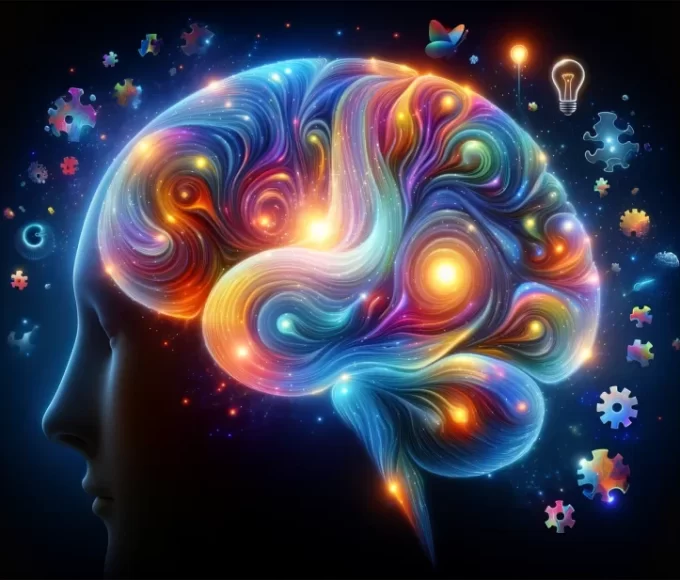Dreams have long captivated human thought, weaving narratives in our sleep that are rich in symbolism and emotion. But what insights can the Cognitive Dream Theory offer compared to other dream theories? This theory posits that dreams are not vastly different from our waking thoughts and are a continuation of our daily cognitive processes. It contrasts sharply with other models, such as the Psychoanalytic Dream Theory, which suggests that dreams are a window to our unconscious desires, or the Activation-Synthesis Theory, which reduces dreams to mere byproducts of the brain’s electrical activity.
Cognitive Dream Theory also diverges significantly from spiritual and mystical interpretations, which view dreams as messages from the divine or prophetic visions. By exploring these different theories, we can gain a multifaceted understanding of why we dream and what our dreams mean, potentially unlocking the secrets that our nighttime visions hold.
Table of Contents
🧠 Cognitive Dream Theory Comparison with Psychoanalytic Dream Theory
🔬 Cognitive Dream Theory Comparison with Activation-Synthesis Theory
✨ Cognitive Dream Theory Differences from Spiritual and Mystical Interpretations
Cognitive Dream Theory Comparison with Psychoanalytic Dream Theory
When we delve into the realm of dreams through the lens of Cognitive Dream Theory, we see that dreams are not cryptic messages from our subconscious mind, as Psychoanalytic Dream Theory proposes. Instead, cognitive theorists argue that dreams are a logical extension of our waking life. Dreams aren’t a mysterious language to be decoded but a reflection of our concerns, learning processes, and memory consolidation that occur while we’re asleep.
- Interpretation of Dreams: In cognitive theory, dreams don’t conceal true meanings but are direct thoughts and concerns.
- Role of the Subconscious: Unlike psychoanalysis, cognitive theory downplays the subconscious’s role in influencing dreams.
- Dream Content: Cognitive theorists assert that the content of dreams is coherent and relates to everyday experiences, contrary to psychoanalytic views.
- Emotional Processing: Cognitive theory emphasizes the significance of emotional processing during dreams, which is also acknowledged but differently interpreted in psychoanalytic theory.
- Memory and Learning: Dreams, from a cognitive perspective, may play a role in memory retention and problem-solving, unlike the classic psychoanalysis focus on unresolved conflicts.
Leading into the specifics, let’s examine how these theories diverge in practical terms by comparing their foundational beliefs.
| Aspect of Comparison | Cognitive Dream Theory | Psychoanalytic Dream Theory | Consensus on Importance |
|---|---|---|---|
| Dream Function | Cognitive Processing | Unconscious Desire Fulfillment | Varied Interpretations |
| Symbolism | Minimal | Extensive | Differing Views |
| Emotional Content | Direct Emotional Processing | Disguised Emotional Expression | Emotional Relevance |
| Memories | Memory Consolidation | Past Memories and Desires | Link to Memory Processes |
| Problem Solving | Possible Function | Secondary to Desire Fulfillment | Potential for Problem Solving |
As we reflect on these aspects, it is evident that while both theories acknowledge the importance of emotional content in dreams, they differ sharply in their interpretation of dream symbolism and function.
Looking forward to comparing Cognitive Dream Theory with Activation-Synthesis Theory, we venture into a scientific understanding that views dreams from a more biological perspective.
Cognitive Dream Theory Comparison with Activation-Synthesis Theory
The Activation-Synthesis Theory of dreams introduces a starkly different viewpoint from the Cognitive Dream Theory, presenting dreams as almost accidental byproducts of the brain’s nocturnal activities. Cognitive Dream Theory, however, maintains that dreams are meaningful narratives shaped by our cognitive experiences during the day.
- Source of Dreams: Cognitive theorists see dreams as rooted in our cognitive experiences, whereas Activation-Synthesis Theory attributes them to random brain activations.
- Meaningfulness: Dreams have intentional continuity and meaning in cognitive theory, which contradicts the inherently random nature suggested by Activation-Synthesis.
- Personal Relevance: Dreams are personally significant in the cognitive perspective, unlike the impersonal, biologically driven view of Activation-Synthesis.
- Learning and Adaptation: Cognitive theory proposes that dreams facilitate learning and adaptation, a concept not embraced by Activation-Synthesis.
- Consciousness in Dreams: The cognitive approach argues for a level of consciousness in dreams that Activation-Synthesis does not recognize.
Let’s compare the two theories’ key tenets to tease out their fundamental differences.
| Aspect of Comparison | Cognitive Dream Theory | Activation-Synthesis Theory | Scientific Inquiry |
|---|---|---|---|
| Brain Activity | Structured Narrative Creation | Random Neuronal Firing | Brain’s Role |
| Consciousness | Semi-Conscious Experiences | Absence of True Consciousness | Consciousness Levels |
| Purpose | Continuous Cognitive Processing | Epiphenomenon of Sleep | Dreams’ Function |
| Narrative | Organized and Personal | Largely Random and Impersonal | Nature of Dream Content |
| Adaptation | Facilitation of Adaptation | Not a Considered Function | Evolutionary Perspective |
The contrast in viewpoints underscores the complexity of dream research and how each theory contributes to our understanding of the brain’s capabilities during sleep.
Now, as we shift our attention to the role of spirituality in dream interpretations, we’ll explore how Cognitive Dream Theory differs significantly from these more mystical perspectives.
Cognitive Dream Theory Differences from Spiritual and Mystical Interpretations
In contrast to spiritual and mystical interpretations of dreams, Cognitive Dream Theory grounds its explanations in the psychological and physiological processes of the mind. While some cultures and belief systems see dreams as messages from a higher power or a connection to another realm, cognitive dream theorists see them as an integral part of our mental functioning.
- Source of Dreams: Cognitive dream theorists attribute dreams to our cognitive workings, not to spiritual sources.
- Purpose of Dreams: Unlike mystical interpretations, cognitive theory suggests dreams help us process emotions and solve problems, rather than providing divine guidance.
- Personal Growth: Both spiritual and cognitive perspectives agree that dreams can contribute to personal growth, but for different reasons.
- Universal Symbols: Spiritual interpretations often rely on universal symbols, which cognitive theory argues are not as significant as personal context.
- Reality of Dreams: Cognitive theory views dreams as subjective experiences, while mystical beliefs may regard them as objective realities or foretellings.
Examining the crossroads of cognition and spirituality, we see the following differences laid out in a structured manner:
| Aspect of Comparison | Cognitive Dream Theory | Spiritual/Mystical Interpretations | Place in Human Experience |
|---|---|---|---|
| Dream Origin | Mental Processing | Spiritual or Divine Messages | Source of Dreams |
| Guidance | Psychological Insights | Spiritual Insights or Prophecies | Dreams’ Purpose |
| Symbolism | Context-Specific | Universal or Archetypal | Interpretation of Dreams |
| Reality | Subjective Experience | Possible Objective Truth | Reality Versus Mysticism |
| Life Impact | Reflective of Waking Life | Influential Upon Waking Life | Effects on Daily Life |
These distinctions show that the interpretation of dreams is not only shaped by our scientific understanding but also intertwined with our cultural and personal beliefs.
As we encapsulate these comparisons, it becomes clear that Cognitive Dream Theory provides a tangible, psychological perspective, offering a counter-balance to the often intangible spiritual and mystical interpretations.
Reflections on Dream Theories: Where Do We Stand?
Our journey comparing Cognitive Dream Theory with other dream theories reveals a landscape rich with diverse interpretations. Have these comparisons shed light on your own dreams? Whether considering the psychoanalytic perspective, pondering the randomness posited by activation-synthesis, or reflecting on spiritual meanings, the exploration deepens our understanding of the elusive world of dreams.
As you continue to journey through your own dreams, consider how these theories may apply to your experiences and what they reveal about your inner world. Dreams, after all, are the ultimate personal narrative, and each individual holds the key to interpreting their stories. May your nighttime voyages be as enlightening as they are mysterious. 😊






